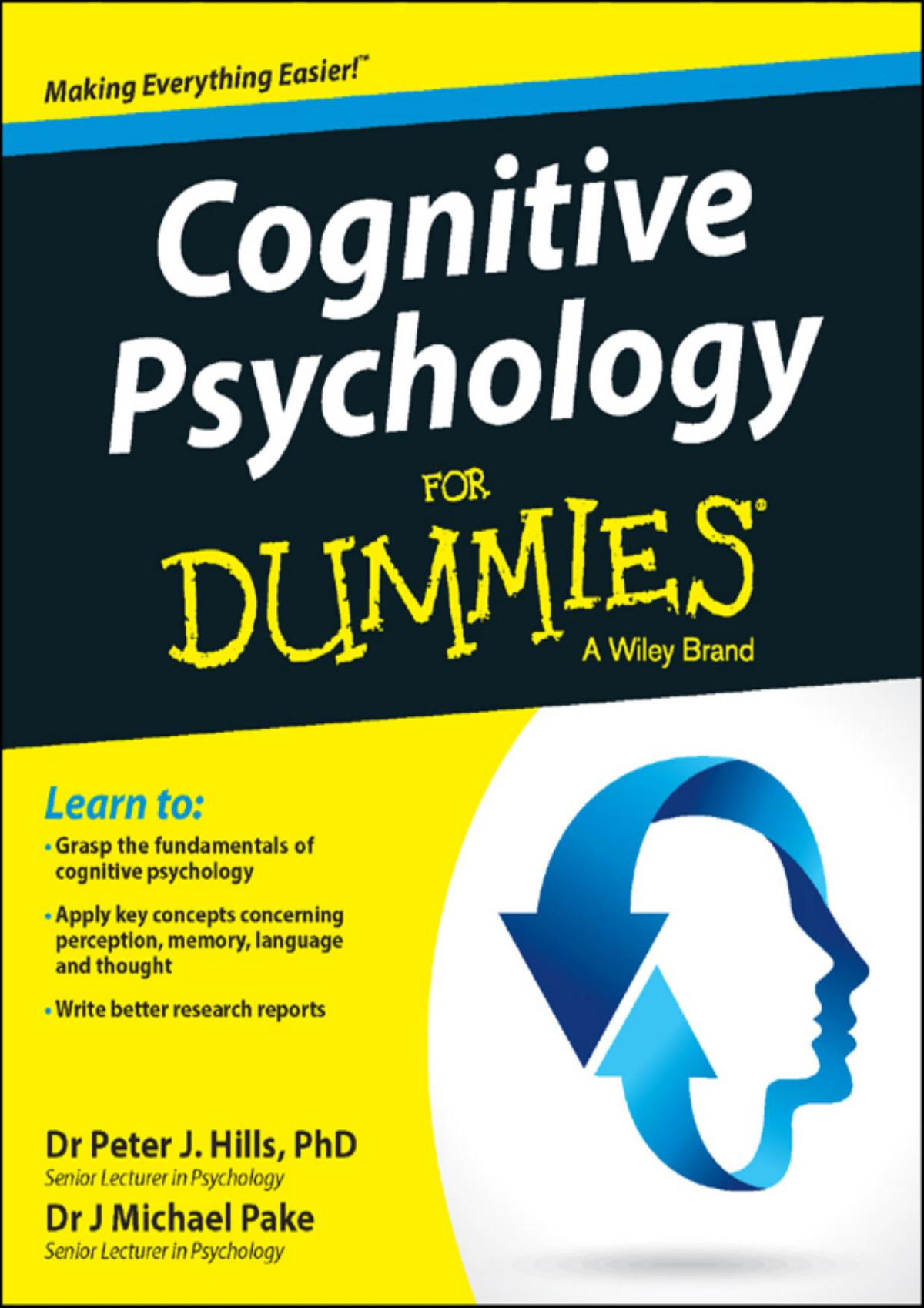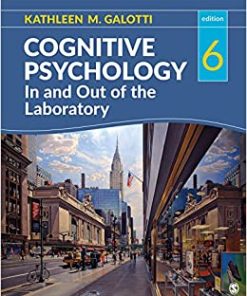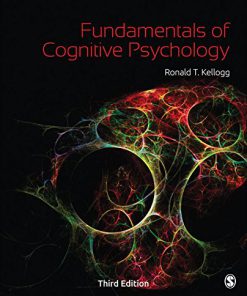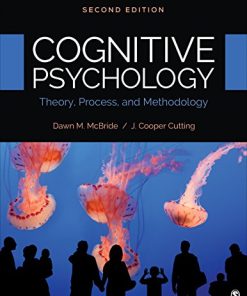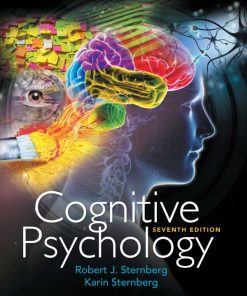(EBook PDF) Cognitive Psychology For Dummies 1st edition by Peter Hills, Mike Pake 111995391X 9781119953913 full chapters
$50.00 Original price was: $50.00.$25.00Current price is: $25.00.
Cognitive Psychology For Dummies 1st edition by Peter J. Hills, Dr Mike Pake – Ebook PDF Instant Download/DeliveryISBN: 111995391X, 9781119953913
Full download Cognitive Psychology For Dummies 1st edition after payment
Product details:
ISBN-10 : 111995391X
ISBN-13 : 9781119953913
Author: Peter J. Hills, Dr Mike Pake
Demystify the core concepts of cognitive psychology Written specifically for psychology students – and not other academics – Cognitive Psychology For Dummies is an accessible and entertaining introduction to the field. Unlike the dense and jargon-laden content found in most psychology textbooks, this practical guide provides readers with easy-to-understand explanations of the fundamental elements of cognitive psychology so that they are able obtain a firm grasp of the material. Cognitive Psychology For Dummies follows the structure of a typical university course, which makes it the perfect supplement for students in need of a clear and enjoyable overview of the topic. The complexities of a field that explores internal mental processes – including the study of how people perceive, remember, think, speak, and solve problems – can be overwhelming for first-year psychology students. This practical resource cuts through the academic-speak to provide a clear understanding of the most important elements of cognitive psychology. Obtain a practical understanding of the core concepts of cognitive psychology Supplement required course reading with clear and easy-to-understand overviews Gain confidence in your ability to apply your knowledge of cognitive psychology Prepare for upcoming exams or topic discussions Cognitive Psychology For Dummies is the perfect resource for psychology students who need a clear and readable overview of the core concepts of cognitive psychology.
Cognitive Psychology For Dummies 1st Table of contents:
Part I: Getting Started with Cognitive Psychology
Chapter 1: Understanding Cognition: How You Think, See, Speak and Are!
Introducing Cognitive Psychology
Researching Cognitive Psychology
Acknowledging the Limitations of Cognitive Psychology
Chapter 2: Studying Cognitive Psychology Means Studying the Everyday
Recognising the Relevance of Cognitive Psychology
Studying Cognitive Systems to See What Goes Right … and Wrong
Accepting that Cognitive Psychology Doesn’t Have All the Answers
Chapter 3: Improving Academic Performance with Cognitive Psychology
Engaging Your Perception and Attention
Improving Your Learning and Memory
Polishing Up Your Academic Reading and Writing Skills
Using Your Thinking Powers More Effectively
Part II: Attending to the Subtleties of Perception
Chapter 4: Perceiving the World around You
Delving into Your Perception System
Seeing What’s Going on in the World
Constructing What You See in the World
Following a World in Motion
Chapter 5: Seeing How People See Depth and Colour
Seeing the Third Dimension
Living Life in Colour
Chapter 6: Recognising Objects and People
‘Just Move a Bit, I Can’t See the View!’ Separating Figures from Background
‘What’s It Meant to Be?’ Perceiving Patterns to Recognise Objects
‘Hey, I Know You!’ Identifying Faces
Chapter 7: Atten-hut! Paying Attention to Attention
‘Hey, You!’ Grabbing Attention
‘Now Concentrate!’ Controlling Attention
Running on Autopilot
When Things Go Wrong: Attention Disorders
Part III: Minding Your Memory
Chapter 8: Where Did I Put My Keys? Short-Term Memory
Splitting Memory Up
Putting Your Memory to Work
Processing Your Memory – Executively
Chapter 9: You Don’t Remember Our Wedding Day? Long-Term Memory
Digging Deep: Levels of Processing Memories
Classifying Long-Term Memories
Storing and Recalling Long-Term Memories
Looking at When Memory Goes Wrong
Chapter 10: Knowing about Knowledge
Thinking of Knowledge as Concepts
Organising Knowledge in Your Brain
Representing Items in Your Head
Putting Aside Knowledge in Your Brain
Chapter 11: Discovering Why You Forget Things
‘It’s on the Tip of My Tongue!’ Forgetting Things
Intending to Forget
Creating False Memories
Chapter 12: Memorising in the Real World
Remembering Yourself and Your Life
Flashing Back in Time
Being an Eyewitness
Part IV: Communicating What Your Brain Thinks about Language
Chapter 13: Communicating the Extraordinary Nature of Language
Monkey Business: Looking at Language in the Animal Kingdom
Discovering What Makes Human Language Special
‘Uggh. Mama. Me Want Be Psychologist!’ Developing Language Skills
Chapter 14: Studying the Structure of Language
Staring at the Smallest Language Units
Working with Words
Seeing What Sentences Can Do
Building Stories that Mean Something
Chapter 15: Talking about Language Perception and Production
Decoding the Art of Reading
Putting Together Coherent Sentences
Recognising Speech as Speech
Delving into Language Problems
Chapter 16: Discovering the Links between Language and Thought
Investigating the Idea that You Need Language to Think
Thinking without Language: Possible or not?
Comparing the Opposing Arguments
Part V: Thinking Your Way around Thought
Chapter 17: Uncovering How People Solve Problems
Experimenting to Reveal Thought Processes: Gestalt Psychology
Watching the Rise of the Computers: Information Processing Approaches
Examining Expert Problem-Solving
Modelling How Learners Learn with Intelligent Tutoring Systems
Chapter 18: Thinking Logically about Reasoning
Testing Human Logic
‘It’s Only (Formally) Logical, Captain’
Reasoning with Uncertainty: Heuristics and Biases
Explaining Reasoning with Models
Chapter 19: Making Up Your Mind: Decision-Making
Researching Real-World Decision-Making
Deciding to Look into Your Brain
Altering People’s Decisions
Chapter 20: Thinking Clearly about the Role of Emotions
How Do You Feel? Introducing Emotions
Recognising the Reach of Emotion
Looking Behind the Reality: How Mood Interacts with Cognition
Encountering Emotions Going Wrong
Part VI: The Part of Tens
Chapter 21: Studying Patients with Brain Damage
Smelling More than Normal
Losing Track of Movement
Failing to Recognise Faces
(Almost) Neglecting the World
Forgetting What You Learn
Knowing that Knowledge Is Slipping Away
Developing without Language
Reading but Not Understanding Words
Struggling to Speak Grammatically
Changing Personality
Chapter 22: Ten Tips for Writing Successful Research Reports
Using the Correct Format
Including Background Research
Criticising Existing Research
Developing Testable Hypotheses
Providing Detailed Methods
Presenting Your Results Clearly
Interpreting Results within Theories
Suggesting Future Research
Avoiding Criticising the Sample
Don’t Knock Ecological Validity
Chapter 23: Busting Ten Cognitive Psychology Myths
Using Your Whole Brain
Seeing Depth with Two Eyes
Failing to See Colour, in Men
Falling for a Symmetrical Face
Memorising like a Tape Recorder
Listening to Mozart Makes You Smarter
Getting Aggressive about Computer Games
People also search for Cognitive Psychology For Dummies 1st:
cognitive psychology definition for dummies
what is cognitive theory in psychology
what is cognitive psychology in simple terms
cognitive theory psychology examples
cognitive psychology examples
Tags:
Cognitive Psychology,Dummies,Peter Hills,Mike Pake
You may also like…
Business & Economics - Personal Finance
Uncategorized
Medicine - Anesthesiology and Intensive Care
Business & Economics - Investing
Medicine - Anesthesiology and Intensive Care
Smith’s Anesthesia for Infants and Children 9th Edition Peter J. Davis
Computers - Hardware
Psychology - Cognitive Psychology


